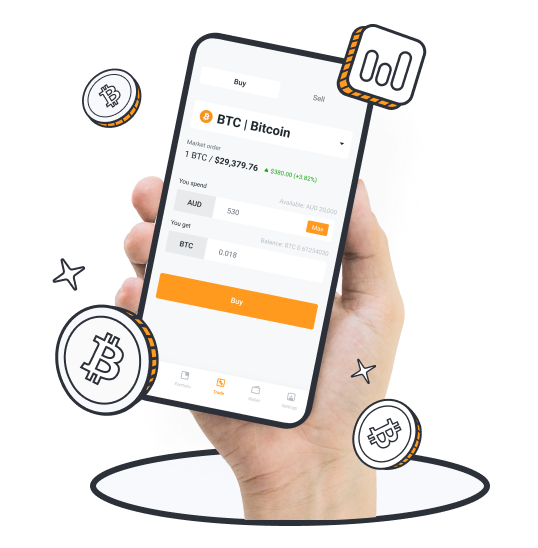What are alt coins?
Alt coins, or alternative coins, are essentially any cryptocurrency that’s not Bitcoin. While Bitcoin may be the most famous kid on the block(chain), the crypto market is teeming with over 5,000 Bitcoin alt coins globally. Each one is unique, offering different features or improvements based on Bitcoin’s original design. Some popular alt coins include:
Key differences between alt coins and Bitcoin in blockchain technology
Several key aspects set alt coins apart from Bitcoin. For starters, unlike Bitcoin, which uses the Proof of Work (PoW) consensus mechanism, alt coins have introduced a variety of other mechanisms. These include Proof of Stake (PoS), Proof of Space (PoSpace), and hybrid models like Solana’s and Proof of History (PoH).
Many alt coins build on Bitcoin’s features and offer new capabilities. For example, Ethereum uses blockchain technology to support decentralised apps and smart contracts, going beyond Bitcoin’s functions. This showcases the technological progress and variety within the alt coin market. However, some alt coins, like Solana, have been criticised for not being as decentralised as Bitcoin. These differences highlight the range and complexity of the alt coin world.
Types of alt coins by market cap
There are many categories of alt coins:
- Stablecoins
- Privacy coins
- Meme coins
- Industry-specific alt coins
Stablecoins
In the crypto market’s roller-coaster ride, stablecoins are the safety harnesses. Unlike most cryptocurrencies, whose prices can swing wildly, stablecoins are designed to keep their value steady. They’re often tied, or “pegged,” to something stable like the US dollar, gold, or even a basket of assets. This makes them a reliable option for people who want to avoid crypto’s usual price chaos.
Well-known stablecoins, like Tether’s USDT and the USD Coin (USDC). These crypto assets can be used for swapping between other cryptocurrencies, an entry point into decentralised finance (DeFi). With their stable value, stablecoins are also becoming more popular for buying goods, paying freelancers, or sending money internationally. However, it’s important to check whether a stablecoin is truly backed by reserves or if its stability relies on algorithms, as this can affect its reliability during market turbulence.
Privacy coins
Privacy coins, as their name suggests, are designed to prioritise anonymity in transactions on a blockchain network. These alt coins employ distinct techniques such as concealing the sender and receiver addresses and the transaction amounts to maintain user privacy.
While these coins appeal to users who value privacy, many Aussie crypto exchanges don’t list privacy coins like Monero (XMR) or Zcash (ZEC). This is because exchanges follow strict rules like Anti-Money Laundering (AML) and Know-Your-Customer (KYC) laws, which require them to verify who’s trading and track transactions to prevent illegal activities like money laundering.
Meme coins
Meme coins are cryptocurrencies inspired by internet jokes, memes, and culture, created to be light-hearted and fun. Unlike projects with groundbreaking technology, meme coins attract users with the promise of vibrant, engaging communities. Dogecoin, one of the first and most famous meme coins, started as a joke but has since become a recognised digital currency with a large following. Other popular meme coins include SHIB and PEPE, illustrating that humour and investment can sometimes go hand in hand.
While some meme coins sure do blow up, nearly 13 million were created in 2024 alone, or 40,000 and 50,000 a day! Most of these don’t go anywhere and serve no real value outside of, well, memes. This is one of the reasons that we at bitcoin.com.au only list meme coins that have had time to prove themselves.
Industry-specific alt coins: adapting blockchain for industry needs
Industry-specific alt coins are often tied to targeted use cases, offering unique benefits that make them useful within certain sectors.
Take Ripple’s XRP, for instance, which facilitates exchanges across different currency types, significantly benefiting the financial sector. Meanwhile, tokens built on the Ethereum blockchain—like those for gaming or supply chain management—use smart contracts to enhance efficiency and transparency. These industry-specific utility tokens showcase the versatility of the crypto space, proving that blockchain’s potential goes far beyond just payments or trading.
Frequently asked questions
What are alt coins as a crypto asset?
Alt coins are any cryptocurrency that is not Bitcoin, offering a range of use cases and functions in the crypto ecosystem. They are essentially alternative coins to Bitcoin.
How are alt coins different from Bitcoin?
Alt coins differ from Bitcoin in terms of consensus mechanisms and functionalities. For example, Bitcoin uses Proof of Work, whereas alt coins may use Proof of Stake or Proof of Space.
What are some types of alt coins?
There are several types of alt coins, including stablecoins, privacy coins, meme coins, and industry-specific alt coins, each serving a different purpose within the crypto ecosystem.
How can I invest in alt coins?
To invest in alt coins, you should conduct thorough research, assess risks, and diversify your investment. You can purchase alt coins through a centralised or decentralised exchange, or a broker.
What are the future predictions for alt coins?
The future of alt coins is uncertain and will be determined by factors such as technological advancements, adoption, and regulatory challenges. Some alt coins may become dominant in the market, while others may struggle with regulations and market forces.
